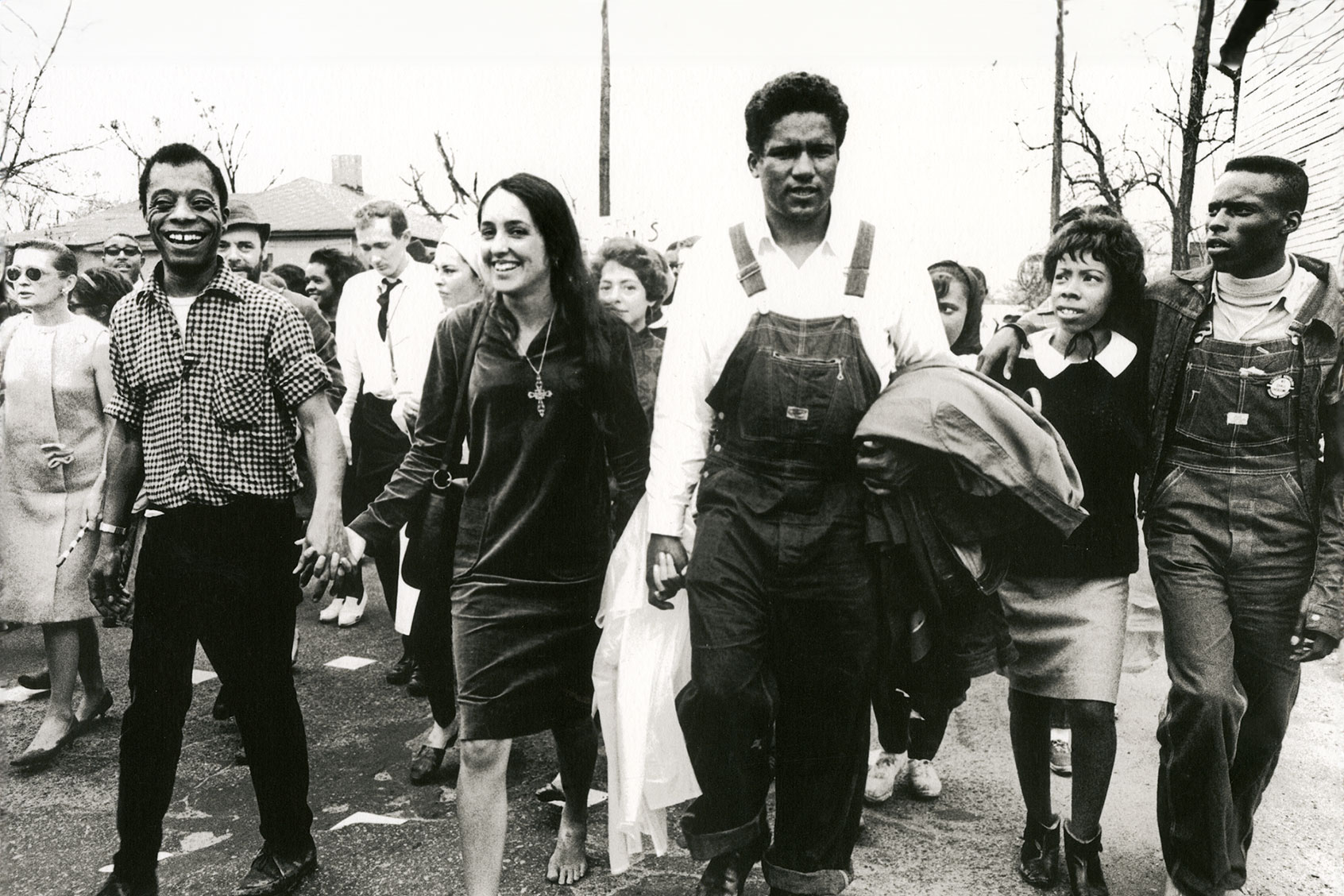An emotionally lacerating documentary about fame and family trauma, "I Am a Noise" provides an unflinching portrait of singer and social activist Joan Baez that will leave audiences gripped to the screen.
Directed by Miri Navasky, Maeve O’Boyle, and Karen O’Connor, "I Am a Noise" proved to be an embarrassment of riches for the filmmakers. With unprecedented access to Baez’s storage unit, which was chockful of journals, drawings, home videos and photographs dating back to the earliest decades of the musician’s life, the directors were confronted with the unusual issue of having too much material at their disposal. As Baez explained to me during a recent interview, “It’s a director’s dream and a nightmare. There was so much stuff,” adding that “my mom and I kept everything.”
And Baez means everything. Incredibly, the treasure trove of media even included recordings of Baez’s therapy sessions, which enabled her to experience “the bone-shattering task of remembering.” In this fashion, "I Am a Noise" makes for one of the most intimate and revealing documentaries of its kind. In one sense, it chronicles Baez’s preparations for her final tour; yet at the same time, the film underscores the singer-songwriter’s lifelong search for the truth about the overarching depression that has marked her life.
Baez was determined that the documentary represent “an honest legacy,” both the heights of her 1960s-era activism, as well as the “wrinkles” that impinged upon her personal journey. In this way, the filmmakers balance Baez’s groundbreaking collaboration with Bob Dylan alongside her painful discovery about childhood abuse and its lifelong implications. To her great credit, nobody’s voice is silenced. Her son, who once took issue with her absence from his life, “was eloquent and forgiving” with his renowned social activist-mother. Even though she now understands her father’s role in the roots of her childhood trauma, Baez nevertheless ensured that “my parents get their say.”
With "I Am a Noise," the filmmakers deftly contextualize Baez’s personal struggles within the larger story of her public life. Take her eyewitness account of attending Martin Luther King’s stirring “I Have a Dream” speech in Washington, DC, in 1963. “When King would speak,” she recalled, “I would weep. He used to joke about it, saying ‘Look at this. Joan Baez in the front row. Every time I say nonviolent, she bursts into tears.’” It was such moments, she told me, “that made it more clear where my place was, where I felt at home, and what I could do with my voice.”
As we concluded our discussion about "I Am a Noise," I couldn’t resist contrasting the hopeful nature of MLK and the Civil Rights era with the bewildering nature of our contemporary politics. “People talk about the pendulum swinging,” she lamented, “but nobody told us it was going to be a wrecking ball. Back then,” she added, “things were defined for us in a way that we could actually figure out what to do to right the wrongs.”
While she agreed that today’s convoluted political climate seems vastly different, Baez pointed out that the journey towards creating lasting social change inevitably takes on a familiar pattern. “People have to follow their instincts and their hearts and find what it is they can do, what they can engage in — whether it’s working as a volunteer or eventually taking the serious risk that’s involved in making social change for the betterment of this planet and for the people living on it.”
"I Am a Noise" is in theaters in New York starting Oct. 6 and will expand to Los Angeles and additional markets Oct. 13.

